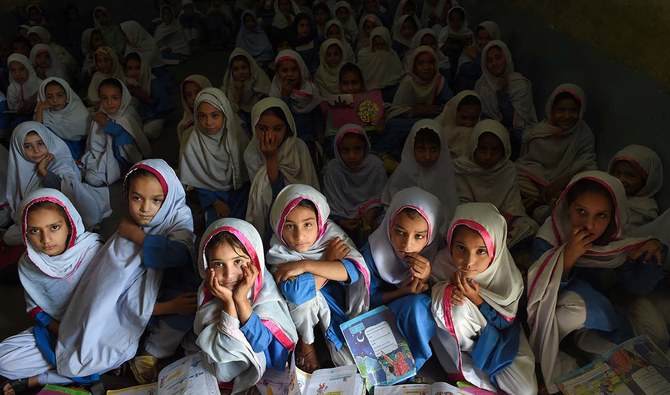ISLAMABAD: Senior Pakistani officials this week discussed the upcoming global conference on girls’ education, scheduled to be held later this year in Islamabad, with Saudi Arabia’s Ambassador Nawaf bin Said Al-Malki, the foreign affairs ministry said.
Pakistan will join hands with the Muslim World League (MWL) organization to host the global conference in Islamabad in September. Pakistan’s state media said last month the primary objective of the three-day conference is to “explore and formulate” effective strategies to ensure better resource allocation for promoting girls’ education on a global scale.
According to the Malala Fund, 12 million girls are out of school in Pakistan and only 13 percent of girls advance to grade IX. The international non-governmental organization says social norms such as gender stereotypes and preference for educating boys continue to prevent girls from accessing education.
Malki called on Pakistan’s deputy prime minister on Saturday to discuss the “positive trajectory of fraternal relations between Pakistan and the kingdom,” Pakistan’s Ministry of Foreign Affairs (MoFA) said in a statement.
“Secretary education who participated in the meeting, briefed on the forthcoming conference of Muslim countries on Girls’ Education in Islamabad,” MoFA said on Saturday.
Key topics of discussion between the two also included enhancing cooperation in various sectors including education, trade and investment, the foreign ministry said.
“The meeting concluded with a reaffirmation of the commitment to strengthening mutually beneficial bilateral ties between the two brotherly countries,” the statement said.
Pakistan’s state broadcaster Radio Pakistan said in June that the conference will feature a diverse group of international and national dignitaries, including education ministers from numerous Islamic countries to address and find solutions to different challenges faced by girls in the education sector.
It said eminent scholars, education experts, policymakers and various other stakeholders are expected to attend the conference. They will share their expertise, experiences, and best practices in the field of girls’ education, Radio Pakistan said.













